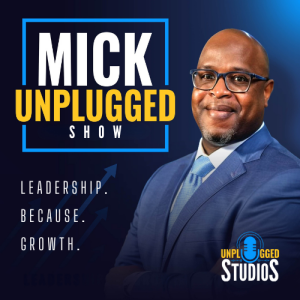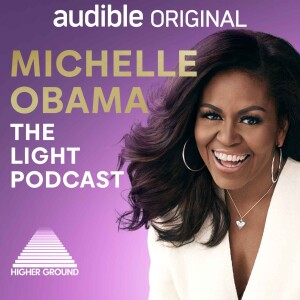

The Most Hated F-Word
https://www.themosthatedfword.com/feed/podcastEpisode List

The Philosophy of Enough: Ancient Wisdom for Modern Wealth
William Irvine | Author | Stoic Practitioner | Summary: Want to live a better life? Ancient wisdom might have the answer. William Irvine shows how Stoicism, a philosophy from centuries ago, can help us navigate modern life and our relationship with money. Instead of chasing external success, he suggests focusing on what we can control - our reactions and emotions. Through practices like negative visualization (imagining losing what we have), Irvine reveals how ancient wisdom can help us appreciate what we have and build resilience. Most importantly, he challenges our endless pursuit of "more" by introducing a powerful concept - "enough." The conversation explores how having a life philosophy can be like a compass, helping us make better decisions about money and find genuine contentment in our complex modern world. Highlights: Understanding 'enough' is crucial for inner peace - knowing when more won't make you happier is key to contentment. Focus on what you can control - your reactions and emotions matter more than external circumstances. Practice negative visualization - imagining losing what you have builds gratitude and appreciation for your current life. Build resilience through voluntary discomfort - facing challenges deliberately makes you stronger. Money can create anxiety, but satisfaction comes from within - external wealth doesn't guarantee inner peace. Living simply leads to greater appreciation - less complexity often means more contentment. Quotes: "Equanimity is the absence of negative emotions." "Stoics embrace positive emotions, not bottle them up." "What is it you really want?" "You're living it, doing things that will win their admiration." Links: William Irvine's website and books: CLICK HERE

The Hidden Costs of Materialism
Dr. Olaya Moldes Andres | Senior Lecturer at Cardiff Business School | Summary In this episode, Dr. Olaya Moldes examines the fascinating connection between what we buy, who we are, and how we connect with others. She explains why understanding why we make purchases—whether for material goods or experiences—is essential for improving our well-being and relationships. Dr. Moldes explores how materialism can strain connections, why social bonds are key to happiness, and how our spending habits reflect our values and goals. This conversation encourages us to think critically about our choices and how they shape our identity and relationships. Key Takeaways Materialism can hurt our relationships, leading to loneliness or conflict. Spending on experiences isn’t always better than buying material things. Understanding why we buy what we do is crucial for happiness. Social connections play a huge role in our well-being. Basing self-worth on material possessions can leave us feeling unfulfilled. Reflecting on how we spend can lead to smarter financial decisions. Experiences shared with others are more meaningful. Finding a balance between ambition and relationships is essential for a fulfilling life. What we buy and how we interact with others shapes who we are. Sound Bites "What is the motivation behind your spending?" "Experiences don’t always deliver more satisfaction than material things." "Materialism can affect how we connect with the people around us."

Is Financial Advice Worth It? How It Really Impacts Your Money and Life
With Dr. Sarah Asebedo | School Director | Researcher | Educator | Editor Episode Summary: In this episode, I sit down with Dr. Sarah Asebedo, a seasoned financial planner turned academic at Texas Tech University. We chat about how financial planning can truly change lives, focusing on the crucial bond between clients and advisors. Sarah introduces her Financial Planning Client Interaction Theory, highlighting how our personalities and emotions play into our financial choices. We also touch on teaching kids about money and how feeling good can lead to better financial decisions. BIO: Dr. Sarah Asebedo, Ph.D., CFP®, is a leading researcher, educator, and practitioner in financial planning, dedicated to bridging the gap between research and practice. Her work focuses on applying positive psychology to financial planning, financial behaviour change, and enhancing client-advisor relationships. Sarah’s research has been widely published in top journals and recognized with awards like the Montgomery-Warschauer Award and Investment News’ Top 40 Under 40. She is a past president of the Financial Therapy Association and holds a Ph.D. in Personal Financial Planning from Kansas State University. Highlights: The Heart of Financial Planning: It's not just about numbers; it's about helping people live better lives. Defining True Value: Understanding what makes financial planning valuable is key to its growth. Client-Adviser Dynamics: The quality of interactions can make or break financial success. Holistic Engagement: Effective planning looks at all aspects of a client's resources and goals. Health Connections: There's a strong link between financial health and overall well-being. Personal Touch: Tailoring advice to individual personalities and emotions leads to better outcomes. Teaching Money Skills: Hands-on learning is essential for kids to grasp financial concepts. Connect with Dr. Sarah Asebedo: Academic Profile: Texas Tech University LinkedIn: Sarah Asebedo

The Surprising Link Between Comedy, Money, Passions, and a Happier Life
With Paul Ollinger | Comedian | Speaker | Host at 'Reasonably Happy' Podcast | Summary: In this episode, Paul Ollinger shares heartfelt lessons about money, happiness, and fulfillment, inspired by his father’s example of frugality and contentment. Growing up in a large family, Paul reflects on how humour became a survival tool, fostering connection and resilience, and how it later shaped his career in comedy. He explores the role of laughter and joy in creating a meaningful life, highlighting how happier people often make better money decisions. Paul also examines the tension between chasing financial success and finding balance, offering insights into the difference between desire and compulsion in the pursuit of wealth. Through stories of gratitude, self-awareness, and aligning career choices with personal values, Paul provides fresh perspectives on the connection between humour, happiness, and financial well-being. BIO:After 15 years in sales at companies like Yahoo! and Facebook, Paul Ollinger left the corporate world to pursue comedy, performing at top clubs like Carolines on Broadway and Zanies, and sharing stages with stars like Norm Macdonald and Chelsea Handler. He hosts the Reasonably Happy podcast, exploring the connection between money, happiness, and meaning with guests like Judd Apatow, LL COOL J, and Nobel Prize winners. Paul’s collection of essays, Reasonably Happy, was released October 2024. He lives in New York City with his wife, two teenagers, and their French bulldogs, Theo and Colonel Tom Parker. Highlights: The best money lessons often come from family. Frugality can bring both security and peace of mind. Humor can help navigate chaos and foster resilience. True happiness isn’t tied to wealth; it’s about defining 'enough.' Career choices should reflect your passions and values. Gratitude and self-awareness are essential for fulfillment. Meaningful experiences matter more than material possessions. Personal choices and reflection shape our relationship with money. Comparing yourself to others hinders happiness. Life’s challenges and joys are both part of the journey. Quotes: "How much is enough?" "You have to be eminently unreasonable." "I wouldn't trade my life for your billions." "Life is 80% good stuff and 20% bullshit." Links: Paul's Book: Reasonably Happy: Essays on Money, Work and Other Things that Piss Me Off Paul Ollinger's Website: CLICK HERE

Money Under the Influence: The Social Side of Spending and Saving
Dr. Shay Harris-Pierre | Professional Counselor | Associate Professor | Certified Financial Therapist Summary: Ever wonder why you think and act the way you do with money? In this episode, Shaun chats with Dr. Shea Harris-Pierre to uncover the hidden forces of financial socialization—the powerful influence of family, culture, and society on our money choices. Dr. Shea shares her own journey of redefining wealth as more than just financial success, exploring how well-being and emotional health play a part. Together, they reveal how family dynamics, early lessons, and even our own self-awareness shape the financial habits we pass on. Tune in to discover insights that could reshape your own money mindset and help you build healthier financial habits. BIO: Dr. Shay Harris-Pierre, PhD, LPC, CFT-I TM, is a Licensed Professional Counselor, Associate Professor, Certified Financial Therapist, and Family Dynamics Consultant. She holds a bachelor’s degree in psychology, a master’s degree in Marriage and Family Therapy, and a PhD in Counselor Education and Supervision. She has 7 years of experience as a counselor educator and 10 years clinical experience as a therapist. Through her private practice, Shades of You Counseling and Consulting, PLLC, Dr. Shay serves high achieving women of color, couples, and families as they navigate trauma, relational, and intergenerational concerns. Highlights: Wealth is defined by personal feelings and experiences. The pandemic prompted a reevaluation of what wealth means. Financial socialization influences our relationship with money. Family dynamics play a crucial role in shaping financial beliefs. Emotional regulation is essential for healthy financial discussions. Conscious awareness of financial behaviours can lead to better choices. Teaching children about money should include emotional context. Parentification can complicate financial education in families. Self-exploration is necessary for understanding financial anxieties. There is no finish line in personal growth regarding finances. Quotes: "Wealth is a feeling, not a number." "The forced slowness of the pandemic helped me to slow down." Links: Shades of Wealth Podcast: CLICK HERE Shades of You: CLICK HERE Consulting for Finance Professionals: CLICK HERE
Create Your Podcast In Minutes
- Full-featured podcast site
- Unlimited storage and bandwidth
- Comprehensive podcast stats
- Distribute to Apple Podcasts, Spotify, and more
- Make money with your podcast












